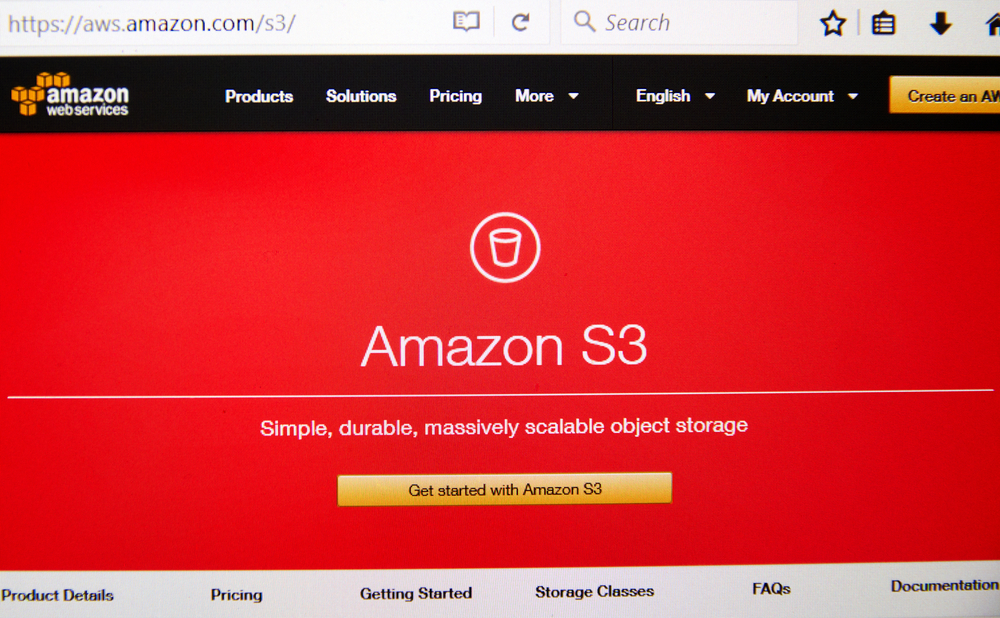'BuckHacker' search tool lets users trawl through unsecure AWS buckets
Developers claim the tool is designed to 'raise awareness' on server security

A new service designed by white hat hackers has been launched and allows anyone to search for unsecured data stored on Amazon Web Services (AWS) servers.
The Buckhacker plugin creates a Google-like search engine that's able to trawl through AWS servers, known as buckets, in order to find those that are misconfigured and potentially host sensitive data that's left exposed to the internet.
It follows a spate of data leaks over the past year involving high profile companies storing customer and client data on AWS servers without password protection, the contents of which could be accessed by anyone with the bucket address.
Accenture, WWE, AA, Dow Jones, and even the US' National Security Agency have been caught out by misconfigured servers, and have been criticised for failing to follow the most basic of security protocols.
Typically, these discoveries were made by research groups stumbling upon a publicly accessible server. However, Buckhacker claims to make the process far easier, allowing users to search AWS listings by using bucket name or filenames that could be associated with a company, although it maintains this is to raise awareness rather than aid would-be hackers.
While the tool is basic in its design, it's able to collect the results and store them in a database for other users to view, the tool's developer explained to Motherboard.
"The purpose of the project is to increase the awareness on bucket security, too many companies was [sic] hit for having wrong permissions on buckets in the last years," explained the BuckHacker developer. "The project is still in a really super alpha stage (there are several bugs at the moment that we try to fix)."
Sign up today and you will receive a free copy of our Future Focus 2025 report - the leading guidance on AI, cybersecurity and other IT challenges as per 700+ senior executives
The Buckhacker plugin is certainly not the first of its kind, as tools such as AWSBucketDump already allows users to maliciously hunt for leaky AWS buckets, and some server addresses can be accessed through Google if a user knows what to search for. However, Buckerhacker is notable as it's by far the most user-friendly tool to emerge.
"Given how readily available discovery tools are for attackers, ensuring corporate infrastructure is not open to the public internet should be considered essential for enterprise IT," said Mike Schuricht, VP of product management at security firm Bitglass.
News of the tool coincided with the leak of 119,000 files belonging to customers of courier firm FedEx, which included home and email addresses, as well as drivers licence and passport details.
"FedEx is just the latest in a laundry list of organisations with deep pockets and deep security resources that have fallen victim to this very basic, yet critical error," added Schuricht.
Amazon revealed in November that it was introducing default encryption for all new AWS servers, which would theoretically prevent leaks of this kind happening in the future. But the encryption feature needs to be manually applied to any existing bucket, meaning that data stored on servers that a company is unaware of will still be vulnerable.
IT Pro has contacted Amazon to see whether it's aware of the new tool.
Image: Shutterstock
Dale Walker is a contributor specializing in cybersecurity, data protection, and IT regulations. He was the former managing editor at ITPro, as well as its sibling sites CloudPro and ChannelPro. He spent a number of years reporting for ITPro from numerous domestic and international events, including IBM, Red Hat, Google, and has been a regular reporter for Microsoft's various yearly showcases, including Ignite.
-
 Trump's AI executive order could leave US in a 'regulatory vacuum'
Trump's AI executive order could leave US in a 'regulatory vacuum'News Citing a "patchwork of 50 different regulatory regimes" and "ideological bias", President Trump wants rules to be set at a federal level
-
 TPUs: Google's home advantage
TPUs: Google's home advantageITPro Podcast How does TPU v7 stack up against Nvidia's latest chips – and can Google scale AI using only its own supply?
-
 Dell Technologies World 2022: Dell unveils security offerings for major cloud providers
Dell Technologies World 2022: Dell unveils security offerings for major cloud providersNews The tech giant also added Cyber Recovery Services to its existing Apex portfolio and announced a multi-cloud collaboration with Snowflake Data Cloud
-
 Denonia named as first malware to target AWS Lambda platform
Denonia named as first malware to target AWS Lambda platformNews Deployment demonstrates how attackers are using advanced cloud-specific knowledge to exploit complex cloud infrastructure, Cado Security says
-
 MWC 2022: Ukrainian protesters call for Russian tech boycott
MWC 2022: Ukrainian protesters call for Russian tech boycottNews The protestors are urging AWS to “shut down” servers being used by Russian entities
-
 AWS' CodeGuru Reviewer updated to tackle Log4j
AWS' CodeGuru Reviewer updated to tackle Log4jNews Amazon's code reviewer also now includes a library detailing every detector used by the platform
-
 Sennheiser exposed personal data of 28,000 customers with leaky S3 bucket
Sennheiser exposed personal data of 28,000 customers with leaky S3 bucketNews Server containing full names, email addresses, phone numbers, and supplier information was left open to the public for three years
-
 AWS shuts down NSO Group infrastructure
AWS shuts down NSO Group infrastructureNews The Israeli company’s Pegasus spyware was used to target at least 50,000 mobile phones
-
 AWS Network Firewall provides network protection across all workloads
AWS Network Firewall provides network protection across all workloadsNews New firewall tools offer improved security in virtual private clouds
-
 EU charges Amazon over misuse of third-party data
EU charges Amazon over misuse of third-party dataNews The EC claims Amazon broke competition rules by using data gathered on third-party sellers to compete against them